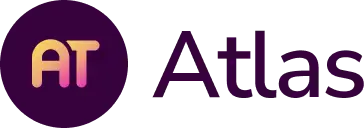Providing Innovation and Creativity for the Modern High School
Why?
The Michigan Creativity Group’s programs increase student enthusiasm and teacher morale through project-based learning that emphasizes collaboration and the implementation of these “soft skills,” while providing exposure to a diverse network that links high schools to local businesses and community leaders and creating opportunities to utilize talent. This model ensures education and economic development are one in the same, thus enhancing the talent pipeline.
Michigan’s teaching profession is in crisis and student engagement continues to be a major topic of discussion. However, by increasing trust, collaboration, and passion-driven learning, educational institutions can begin to work more closely with economic development groups, arts organizations, local and state government agencies, and community groups to reignite the teaching profession and increase student empathy, empowerment, and engagement.
How?
- Create psychologically safe learning environments where empathy, inclusion, and idea sharing are the norm
- Give up power and promote a more democratic approach to learning and discovery
- Change the role of teacher and student to “Talent Developer” and “Learner” where each become co-creators, collaborators, supporters, and game changers who work together to solve problems and push the status quo
- Support a culture of innovation where risk-taking is not only embraced but nurtured and supported on a daily basis
- Increase the amount of Formative Feedback shared
- Share stories of success and failures
- Utilize assets and increase awareness of creative industries and initiatives
- Strengthen community partnerships and increase stakeholders who want to create win/win scenarios
- Provide project-based learning ecosystems where opportunities lead to application and authentic audiences
- Have a “Be the Solution” mindset -- Be fearless in your pursuit to make a difference and don’t let money be an obstacle or skeptics stand in your way
Dewitt and Michigan Creativity Groups
The MCG programs deliver the following results to participating high schools:
- Development-oriented approach to the classroom with an emphasis on students as co-creators
- Stronger relationships between schools and local businesses, including internships, attending tours, network building opportunities, and conferences
- New volunteer opportunities for students
- Increased economic support for schools through enhanced partnerships and donations to schools
- Enhanced curricula
- Career-oriented use of social media for students
- Enhanced community standing of schools
The MCG offers the following specific services to schools and school districts, each tailored specifically for participating schools and provided through detailed written materials complemented with presentations to students, teachers, parent groups, and administrators:
- Diagnostic analysis including a “creative resources map” evaluating how a school can further develop its curriculum, internship offerings, use of social media for economic development, and utilize community, regional, and statewide resources to enhance learning and student engagement
- “How to” kit for developing of a new Creative Leadership course, enhancing existing class offerings, including sample lessons and cultural enhancement activities
- Economic Partnership Plan for developing strong connections with local businesses, including contacts with local businesses with verified interest in alliances with their local high school
- Help in the formation of a "Creativity Group" for enhancing extra-curricular activities, student interests, and increased exposure to unique learning opportunities outside of school
- Applied Improvisation workshops to help improve cultures where trust, listening, collaboration and an “I Succeed If We Succeed” approach to learning and discovery
- Instruct inventing and problem-solving methodologies such as TRIZ, kata, LEAN, six-sigma and intellectual property resources
- Outreach materials, including “press kit,” for explaining school’s initiative to local press and local community as well as handouts such as the "The Rise of the Talent Developer"
- Social Media Plan emphasizing project-based learning and economic development to empower students to use social media for networking and career development
- School membership in state-wide creativity and innovation network, with opportunities to participate in creative educators’ events and economic development labs
DeWitt Creativity Group and Michigan Creativity Group’s programs have seen numerous concrete successes for students and staff. (A fuller list of our successes and “Project Idea Menu” can be provided upon request)
A few examples include:
- Development of new “Creative Leadership: Opportunities for Social Innovation" class - Transforming educational opportunities for students by providing a passion centered culture ("The Idea Hive") that is student centered in all aspects
- Students and staff created lessons plans as part of an international "Toolkit" to be included in the Crossing Borders Education documentary film The Dialogue to be distributed to nearly 1,000 educational institutions in the United States and over a 1000,000 students in China
- The creation and implementation of the "Michigan Creative Educators Summit" (7 yrs.) bringing together multiple stakeholders together to showcase creativity and innovation while working to amplify a new narrative in education
- Donation by the Great Lakes Renewable Energy Association of windmill with $10,000 installation to local high school to be used for science classes
- Told the story of an underwater robotics team that traveled to Palau to search for World War II planes in the Pacific Ocean and created a feature documentary film Stockbridge to Salt H2O
- Lead Creative and “Educational” Placemaking initiatives such as the Riverbash Arts Festivals in the communities of DeWitt and Lansing. These events celebrated creativity while enhancing economic prosperity for the region
- Creation of an “Adopt a Business” program allowing local high school students to work as interns and host events in local business for hands-on experience, increased exposure to unique working environments, and strengthening professional networks
- School participation in local Research & Development labs, Innovation hub, and Maker Spaces to promote creativity and provide students with workplace-relevant skills
- Acknowledged schools, educators, and business leaders who have supported innovative cultures and collaborations with not only school districts but local communities and area businesses as well. Presented them with the “Innovative Educator Award” because “Everyone is an Educator”
Additional Resources:
- LinkedIn Profiles: Jeff Croley and Jason Lafay
- Instagram: Creative Leadership
- DeWitt Creativity Group Website
- Students United: Mobile Minds Flipping Society Podcast
To learn how other teachers are innovating instructional practices, join us at an upcoming PD event!

